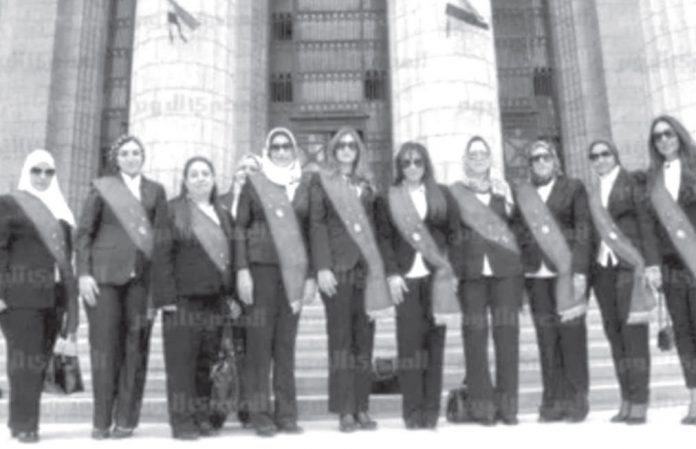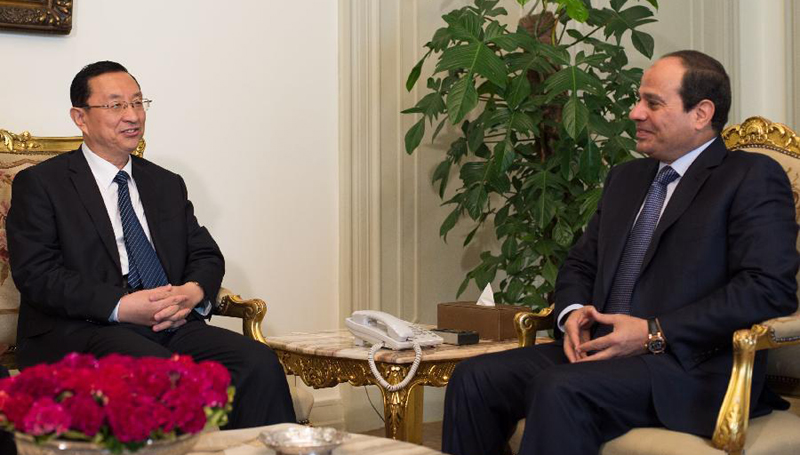By: Sherif Abdel Ghaffar
In 30th of June 2013, the Egyptian people took to the streets demanding the end of the brotherhood era. Tariq Al Kholy a current Egyptian youth Parliament member and an active participant in the 25th of Jan revolution and the 30th of June revolution said to Parlamany newspaper that the 30th June revolution started to gain back the Egyptian identity from a group who wanted to establish an Islamic caliphate. The component of an Islamic caliphate is a gray area depending on which interpretation of Islam one adopts but one of the things Caliphate advocators most probably agree on is that in an Islamic Caliphate there is no room for women to be judges. Although the brotherhood claimed that they were not officially after establishing an Islamic Caliphate, evidence was pointing to the contrary. On the women rights scale women representation in the Parliament dropped from almost 13% to under 2% in the brotherhood era, brotherhood parliament members advocated women circumcision, spoke of decreasing females’ marriage minimal age, attempted cancellation of the female’s right to divorce decision named “Al- Kholaa”, and Egypt’s rank in women’s political rights decreased to 125 out of 133 countries according to the world economic forum report in 2012. In the brotherhood sponsored constitution there was only one article for women and it was about motherhood and childhood. One of the articles stated in the 30th of June revolution declaration was a decision to form a new committee to revisit the brotherhood sponsored constitution to amend it for a new referendum. Article 11 was added in the 2014 constitution stating: “The state guarantees the right of women to assume public office, high administrative positions, and the right to be appointed in the judiciary without discrimination”. The first appointed female judge in the Egyptian republic was “Tahani El Gibaly” in 2003, three years later a number of women judges followed. So why did the revolution feel the need to state the right of women to be appointed as judges in the new constitution? Article 14 of the same constitution states that assuming public office is a right for citizens on the basis of efficiency. Wasn’t this article enough? I believe the answer lies in understanding the depth of the culture invasion that swept Egypt since we had Cleopatras, some refer to it as the Bedouin cultural invasion. Revolutions are usually catalyzed by dreamers and in our case I believe the 50-member Committee representing all segments of the Egyptian society drafting the constitution were well aware of the impact of this invasion and its ability to generate resistance against granting Egyptian women these rights. Perhaps one example of this resistance and although the constitution states otherwise is the on-going refusal of the general assembly of administrative court Judges to appoint women judges at the time being as they say. The same administrative court that ruled against dissolving infamous political parties formed unofficially on the basis of religion and who also ruled that Sanafir & Tiran (two small Saudi Islands were kept under Egyptian military protection) were Egyptian before the Supreme Court froze their sentence and the Egyptian parliament approved the agreement to hand them back to Saudi Arabia. The administrative judges say that the constitutional article is not enough on its own to grant female judges a place in the administrative court and an explanatory law is needed. So how does the revolution respond? The Egyptian parliament is currently drafting a law to force the general assembly of administrative judges to give Egyptian women their right, and the revolution continues.















